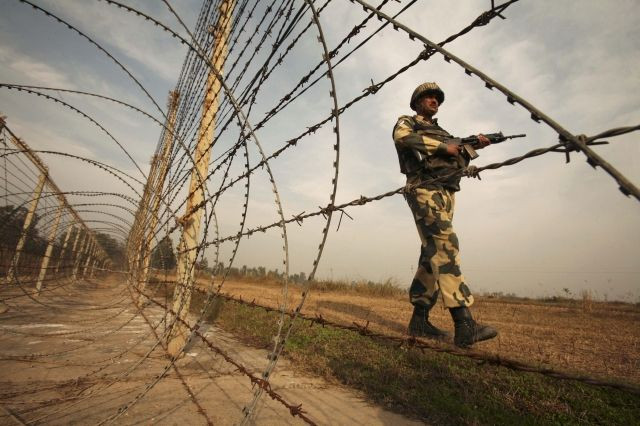Indian Troops Kill Pakistani Soldier Who ‘Accidently’ Crossed Border

The Indian army said that its troops killed a Pakistani soldier who strayed across the de facto border in Kashmir into the Indian-administered territory on Thursday.
The Pakistani soldier was killed in a gun battle after the Indian army opened fire, detecting “some suspicious movement,” Lieutenant Colonel Rajesh Kalia, a spokesman for the Indian army's northern command, told the AFP on Friday.
The soldier had crossed the Line of Control (LoC) in the Nowshera sector in Kashmir, about 100 kms from Jammu, "to attack Indian post," the spokesman said.
The Indian army said that “on being challenged, the intruder fired" and Indian troops retaliated, killing the Pakistani soldier. An AK-47 rifle was found alongside his body.
Two Indian soldiers were also injured in the gunfight, news agencies reported.
Indian army officials said that the soldier’s body was returned to Pakistan at its request at 3:00 p.m. (9:30 a.m. GMT) Friday "with full military respect due to a soldier,” NDTV reported.
Pakistan said that the soldier had lost his way and accidentally strayed across the border.
Meanwhile, an Indian defense spokesperson confirmed to India Today reports of unprovoked firing by Pakistani rangers on Indian posts in Mendhar sector of Jammu Thursday night. No casualties were reported.
The directors general of military operation (DGMOs) of both nations held fresh talks on Friday morning after the latest cease-fire violation along the Line of Control, or LoC, Indian media reported.
Two Indian soldiers and three Pakistani soldiers died last month near the Line of Control (LoC) that divides Kashmir between the two countries, in the worst bout of violence since both nations declared a cease-fire in November 2003. The recent bout of skirmishes began on Jan. 8 with the killing of two Indian soldiers. One of them was beheaded.
The cease-fire violations sharply deteriorated India-Pakistan relations.
On Jan. 21, officials in the India-administered region of Kashmir issued an advisory to residents to be prepared for a potential nuclear, biological or chemical war by building bomb-proof basements or bunkers and stocking up essential supplies.
Local officials maintained that the warning was only a part of a routine campaign to educate the public and that the newspaper advisory was “not connected with anything else.”
On Jan. 18, India Foreign Minister Salman Khurshid said that there was a “positive tone” in Islamabad’s offer to hold high-level talks to diffuse the tensions, adding: "We welcome it and will make an appropriate response."
Cross-border trade and transport, which were suspended for a few weeks in January in the wake of the tensions, resumed by the end of the month.
© Copyright IBTimes 2025. All rights reserved.





















